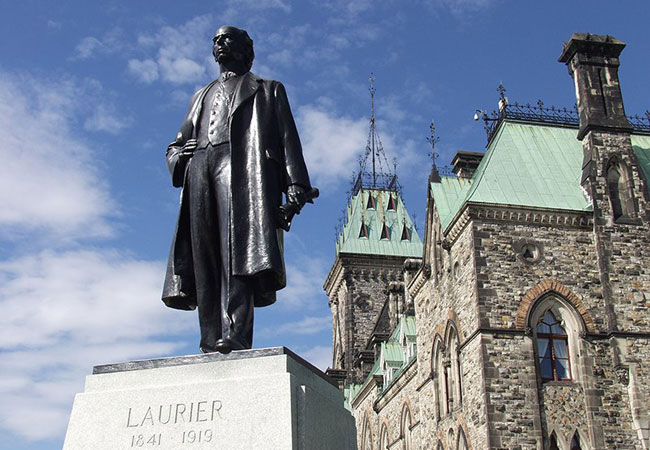December 16, 2013
Former prime ministers: do their legacies have a future?
By Andrew Cardozo
From The HIll Times

If it weren’t for the death of Nelson Mandela, we were well on the way to forgetting that Canada ever played a key role in ending apartheid in South Africa.
Brian Mulroney along with his then, foreign minister, Joe Clark did some heavy lifting in getting a good chunk of the international community to oppose the heinous policy, impose sanctions and call for the freedom of Nelson Mandela. And they did this when two of our fastest friends, Margaret Thatcher of Great Britain and Ronald Reagan of the U.S., totally disagreed with the approach. That leadership is not only worth remembering for what it was, but it highlights how Canada, a middle power can play a significant role on the world stage.
A new series will examine some of the high points of Prime Ministers over the last 50 years and consider the future of their key accomplishments that define the Canada of today. It is organized by the Canadian Centre for Progressive Policy, which I am a part of.
Canadians are not a boastful people and we also make it a practice of forgetting our political history and what former prime ministers have accomplished.
Lester B. Pearson played a key role in other international issues, including the establishment of the United Nations and the creation of CIDA, the Canadian International Development Agency. And there was medicare, the Canada Pension Plan, Old Age Security. Few still credit the chaotic administration of Pearson for all these goodies. Maybe we do remember the Canadian flag he ushered in only because the monarchists gave him such heck about it.
Pierre Elliott Trudeau is remembered for the Canadian Charter of Rights and Freedoms, although the current government avoided marking its 30th anniversary last year. And if we don’t mark anniversaries, we forget the deeds and their importance; bilingualism, multiculturalism, controlling inflation, and the list goes on.
Joe Clark’s most notable contributions came during his time as foreign minister and constitutional affairs minister, but as a former prime minister he has continued to work with international partners, sharing his breadth of experience.
John Turner’s most significant reforms also came as a minister in charge of justice and finance. He initiated the Federal Court of Canada, made key reforms to the Criminal Code and battled the recession of the mid-seventies.
Besides South Africa, Mulroney should also be remembered for the Canada-U.S. Free Trade Accord, the Acid Rain Treaty, employment equity, and, yes, also the GST and his efforts at national reconciliation—Meech Lake.
Kim Campbell, just by getting to be prime minister, raised the bar for women in politics and government. In her short time in office she reorganized several federal departments, changes which last until today, and had one of the smallest Cabinets in recent history. As justice minister she gave issues of native justice their first serious attention.
Jean Chrétien should be remembered for the Clarity Act designed to make sure any future referendum on separation will have a clear question. He also ran the most fiscally-responsible government in years, putting to bed that old canard of “tax and spend Liberals.” And on Mandela, we were reminded this week, that he changed our citizenship policy to allow for exceptional honorary Canadian citizenship provided to foreign citizens—Mandela being the first to receive the honour in 2001.
For Paul Martin, his record as finance minister in Chrétien’s Cabinet is legendary, both for expenditure reduction and bank regulation. And as prime minister, he took federal-provincial relations to new heights as he created the Kelowna Accord, national child care and a 10-year health accord—all through multiple federal-provincial agreements.
Now that is skimming the surface of the accomplishments of the prime ministers of the last half-century. History is useful to remember where we have been.
But what is even more valuable is to think about the future of these legacies.
What do we do next about CPP? Ontario Premier Kathleen Wynne is leading a provincial effort to expand it, is she right?
Is the Charter of Quebec Values the next step on multiculturalism?
Are we heading in the right direction in international affairs? Critics of the current government say we are taking a sharp turn away from our principled record on multilateralism and finding resolutions to conflicts.
When it comes to reforming the criminal code, critics say the current government’s “tough on crime” approach is not going to reduce crime rates. What is the best balance?
What have we learned from our first free-trade deal 25 years later, that is relevant for upcoming deals with Europe, China, and India?
Have we made any progress when it comes to gender equity in politics over the last 20 years?
Is the Clarity Act right or should it be softened, as Thomas Mulcair wants to do?
There hasn’t been a meeting of the prime minister and premiers in years. Is that good or bad for governance—and public policy—in this federal country?
These are among the questions that will be considered in the year-long “Prime Ministerial Series” project of the Canadian Centre for Progressive Policy in 2014. There will be papers and articles on each leader as well as a seminar. Importantly, the examination will begin looking at the past and focus will be on the future.
We were right on South Africa back then. What are the key policies that will define Canada in the decades to come?

Andrew Cardozo is president of the Canadian Centre for Progressive Policy.



